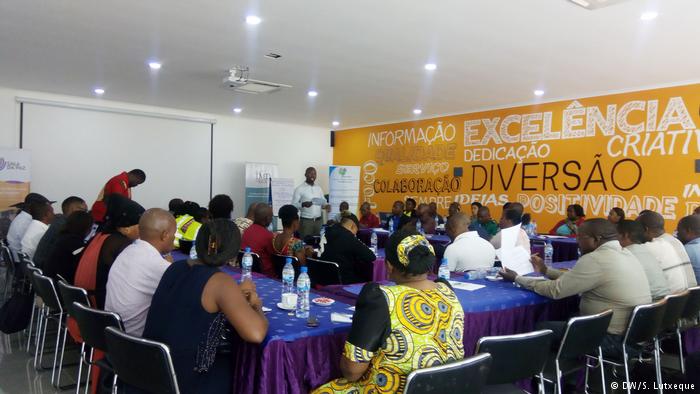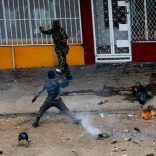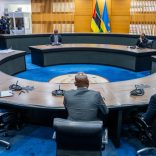EUMAM MOZ delivers Media Training for Senior Officers of the FADM
Mozambique: Peace Room calls for more preparation for new electoral model

A Sala da Paz [The Peace Room], a Mozambican electoral observation platform, says that both politicians and civil society should be better prepared for the new electoral model coming into effect in October, and warns that the process could be tense.
The constitutional revision approved by parliament last Wednesday (23.05) has been applauded both by political parties and civil society organisations, who believe that strides have been made towards lasting peace in Mozambique.
Among them is the Peace Room, an electoral observation platform made up of civil society organisations, which emerged this year as a result of Nampula’s mayoral by-elections.

Hermenegildo Mulhovo, executive director of the Institute for Multiparty Democracy (IMD), which created the Peace Room, believes that the upcoming elections in Mozambique will be “tense”.
“For this year, with the current reform decentralisation and the use of a new model of heads of list, and the possibility of by-elections not being held, we are predicting fairly tense elections,” he says. “The political parties will want to determine the results in one single round, and that brings a lot of challenges.”
Challenges of the new model
With the approval of the constitutional revision proposal, municipal presidents will now also be elected heads of lists to the municipal assembly, as of the elections of October 10, 2018. Since the 1998 municipal elections, the vote has been by direct ballot.
Mulhovo speaks of the “learning challenges” posed by the new model. “Because we will have heads of lists – and this has already been widely discussed – but we do not know what the provision in the ballot paper is,” he explains.
Smartphones to monitor elections
In the October elections, the Peace Room will oversee the process in 16 of the country’s 53 municipalities, including Nampula, Beira, Quelimane, Guijá, Tete and Maputo, those most conducive to “potential conflicts”, as Mulhovo put it to DW Africa.
“We have defined [these 16 municipalities] as those areas where we have more or less balanced results in terms of representation of the opposition and the ruling party. Usually these are the places where conflicts have been greatest in elections, because there, there is the fiercest competition.”
In addition to the observation teams that will be sent to the polling stations, the Peace Room also wants to use smartphones to publish “pertinent information” about the process in real time, similar to what happened in the midterm elections in Nampula.
Concerning the electoral registration process that ended on May 17, the Peace Room detected many irregularities across the country, mainly in Nampula. Mulhovo has a piece of advice. “The electoral management bodies must prepare themselves to address all the problems, both from the point of view of logistics and from the agents themselves at the voting tables. We learned a lot from Nampula, and the elections were of good quality, despite some surprises,” he concludes.












Leave a Reply
Be the First to Comment!
You must be logged in to post a comment.
You must be logged in to post a comment.